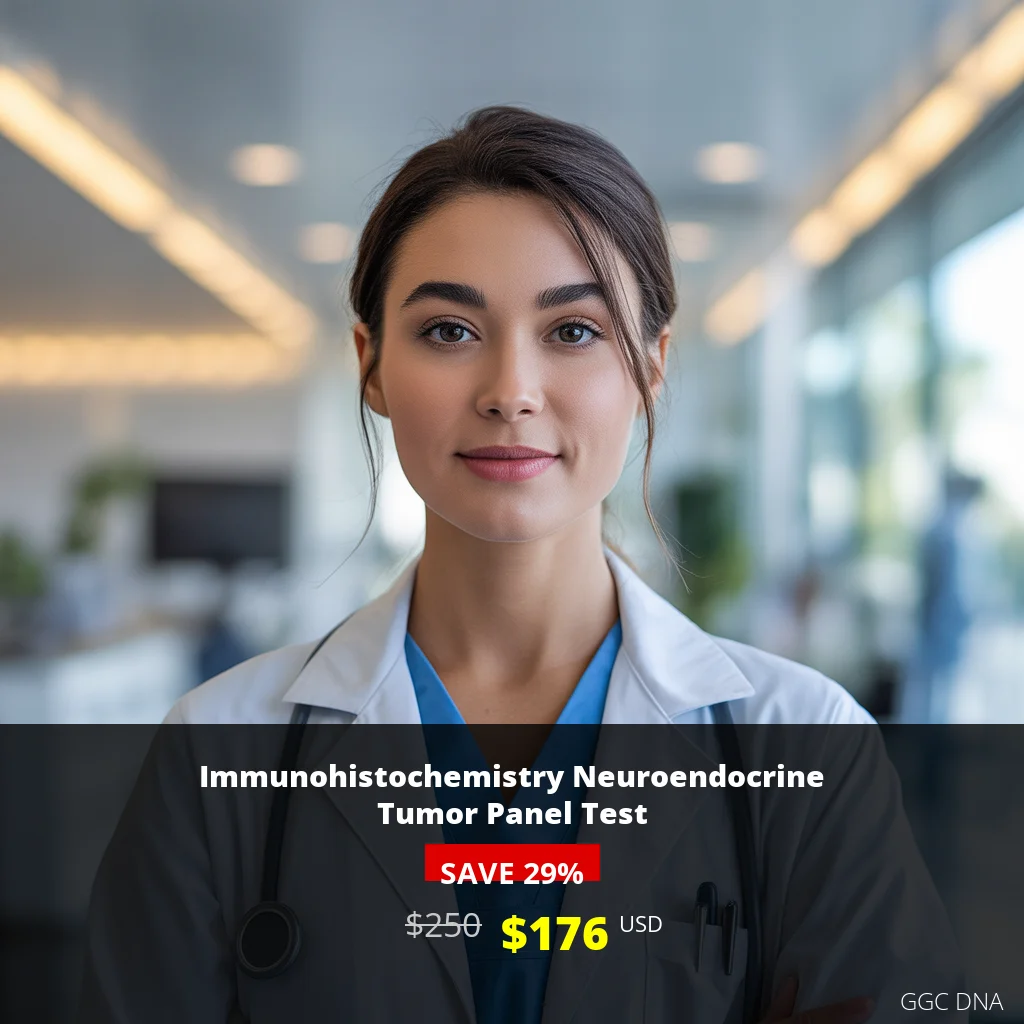Immunohistochemistry Neuroendocrine Tumor Panel Test
Comprehensive Neuroendocrine Cancer Diagnosis
The Immunohistochemistry Neuroendocrine Tumor Panel Test represents a cutting-edge diagnostic approach for identifying and characterizing neuroendocrine tumors throughout the body. This advanced immunohistochemistry panel provides crucial information that helps oncologists and pathologists determine the exact nature of neuroendocrine malignancies, enabling precise treatment planning and improved patient outcomes.
What This Test Measures and Detects
Our comprehensive panel analyzes six critical biomarkers that provide detailed insights into neuroendocrine tumor characteristics:
- CDX2: Identifies tumors of intestinal origin and helps differentiate gastrointestinal neuroendocrine tumors
- Chromogranin: A general neuroendocrine marker that confirms neuroendocrine differentiation
- Ki67: Measures tumor proliferation rate and helps grade neuroendocrine neoplasms
- PAX8: Detects tumors of renal and Müllerian origin
- Synaptophysin: Another essential neuroendocrine marker for confirming diagnosis
- TTF1: Identifies pulmonary and thyroid neuroendocrine tumors
Who Should Consider This Test
This specialized diagnostic panel is recommended for patients experiencing:
- Unexplained carcinoid syndrome symptoms (flushing, diarrhea, wheezing)
- Multiple endocrine neoplasia (MEN) syndromes
- Suspected neuroendocrine tumors in lungs, gastrointestinal tract, or pancreas
- Elevated hormone levels suggesting neuroendocrine origin
- Metastatic cancer of unknown primary origin
- Family history of neuroendocrine tumors
- Abnormal imaging findings suggesting neuroendocrine neoplasms
Key Benefits of Neuroendocrine Tumor Panel Testing
- Precise Tumor Classification: Accurately identifies the specific type of neuroendocrine tumor
- Treatment Guidance: Helps oncologists select the most effective targeted therapies
- Prognostic Information: Provides insights into tumor behavior and expected clinical course
- Origin Determination: Identifies the primary site of metastatic neuroendocrine tumors
- Grading Accuracy: Determines tumor grade through Ki67 proliferation index
- Comprehensive Analysis: Multiple markers ensure thorough tumor characterization
Understanding Your Test Results
Your test results will provide detailed information about each biomarker’s expression pattern:
- Positive CDX2: Suggests gastrointestinal origin
- Positive Chromogranin/Synaptophysin: Confirms neuroendocrine differentiation
- Ki67 Percentage: Indicates tumor grade (low grade: <3%, intermediate: 3-20%, high grade: >20%)
- Positive PAX8: Suggests renal or gynecological origin
- Positive TTF1: Indicates pulmonary or thyroid origin
Your healthcare provider will interpret these results in the context of your clinical presentation and imaging findings to develop a comprehensive treatment plan.
Test Pricing and Availability
| Price Type | Amount (USD) |
|---|---|
| Discount Price | $176 |
| Regular Price | $250 |
Nationwide Testing Availability
We have diagnostic centers conveniently located across the United States, serving patients in all major metropolitan areas including New York, Los Angeles, Chicago, Houston, Phoenix, Philadelphia, San Antonio, San Diego, Dallas, San Jose, and many more cities. Our network ensures accessible, high-quality cancer diagnostics for patients nationwide.
Book Your Test Today
Take control of your health with our comprehensive Immunohistochemistry Neuroendocrine Tumor Panel Test. Our experienced team of oncologists and pathologists are ready to provide you with accurate, timely results that can guide your treatment journey. Contact us today to schedule your test and get the answers you need for effective cancer management.
Call or WhatsApp: +1(267) 388-9828
Test Specifications
- Turnaround Time: Block: 5 days | Tissue Biopsy: 5 days | Tissue large complex: 7 days
- Sample Type: Submit tumor tissue in 10% Formal-saline OR Formalin fixed paraffin embedded block
- Shipping: Ship at room temperature
- Required Documentation: Provide a copy of the Histopathology report, Site of biopsy and Clinical history






